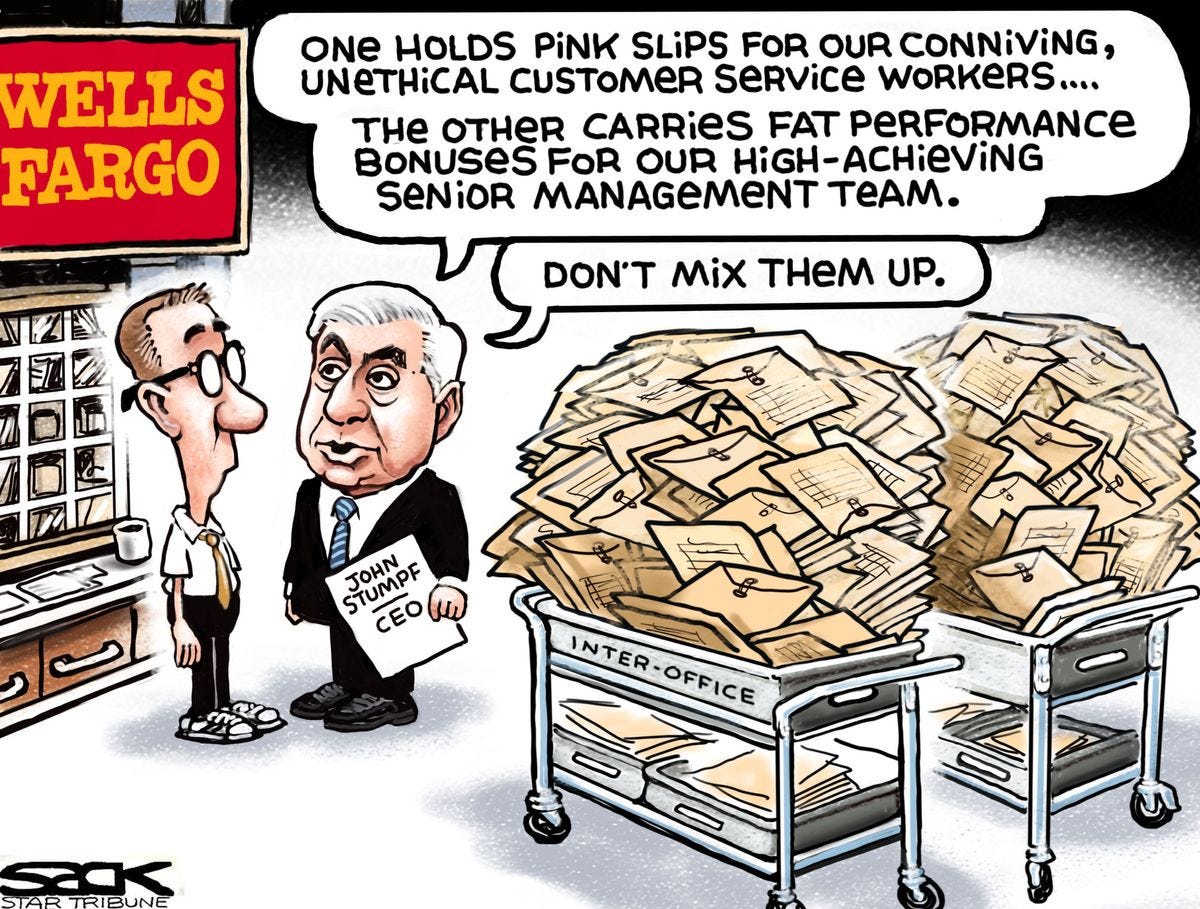Issue #26 - Beyond Crime: Assessing Adverse Media Risks
Polar Insider | Issue #26 | Week of 27 August 2025
🧊 Introduction
Hi there,
Welcome to this week’s edition of Polar Insider. This issue explores how financial crime professionals can assess ESG controversies and reputational risk in due diligence. Negative media is no longer just about financial crime, controversies around environment, human rights, and governance now directly affect client risk profiles.
Here’s what you’ll find inside this issue:
📌 Top Story: Beyond Crime: Assessing Adverse Media Risks
🔎 Case Study: Rio Tinto’s Juukan Gorge Disaster (Retain with Conditions)
🔎 Case Study: Wells Fargo Cross Selling Scandal (Exit Decision)
🌍 Regulatory Roundup
🧰 Compliance Toolkit: Key Frameworks & Resources
📌 Top Story: Beyond Crime: Assessing Adverse Media Risks
🎥 Prefer to watch? Catch the 2 min explainer:
What’s Happening
Financial institutions are increasingly exposed to adverse media not tied to financial crime, from environmental harm to social scandals. These controversies can trigger regulatory inquiries, investor backlash, and long-term reputational harm. For financial crime professionals, the risk is twofold: damage to the institution’s reputation and signals of weak governance at the client.
Regulators and investors are expanding their focus. The EU’s Corporate Sustainability Due Diligence Directive (CSDDD) requires companies to address human rights and environmental impacts, while investors are embedding ESG criteria into fiduciary duty. The Wolfsberg Group has stressed that negative news screening must extend beyond crime to capture reputational risks.
The Risk to Financial Crime Teams
• Reputational Risk: association with unethical clients damages trust.
• Indicative Risk: ESG failures may reveal deeper governance issues.
• Regulatory Risk: ESG due diligence is increasingly expected as part of compliance.
Reputational fallout spreads quickly, is harder to quantify than regulatory fines, and can cause long-term business loss.
What You Can Do
✅ Broaden your adverse media lens: monitor ESG, human rights, and governance issues.
✅ Use severity-based scoring frameworks: classify controversies as Minor, Moderate, or Severe.
✅ Integrate ESG into due diligence: adjust inherent risk ratings based on controversies.
✅ Leverage public frameworks: OECD, UNGPs, UN Global Compact provide benchmarks.
✅ Establish clear response plans: from enhanced monitoring to client Exit when trust is broken.
🧠 Pro Tip: Document all rationale. Regulators expect to see why a client was retained, escalated, or exited.
Assessing Entities Subject to ESG Controversies
When controversies are identified, use this framework to decide whether to retain, escalate, or exit:
Severity of Controversy
• Minor: isolated incident, low impact.
• Moderate: repeated issues, NGO/regulatory scrutiny.
• Severe: systemic misconduct, global attention.Credibility of Sources
• Independent, corroborated, regulator/NGO-backed vs. unverified or isolated.Client Remediation
• Strong corrective action and reforms vs. denial or repeat behavior.Decision Outcomes
• Retain (Low Risk): Minor issues with remediation.
• High Risk (EDD): Moderate or unresolved issues, retain with oversight.
• Exit: Severe controversies with no remediation, escalate to senior committee
🔎 Case Study: Rio Tinto’s Juukan Gorge Disaster (Retain with Conditions)
What Happened
In May 2020, Rio Tinto legally blasted two 46,000-year-old Aboriginal sacred rock shelters in Western Australia’s Juukan Gorge. Although legally permitted, the act sparked global outrage and became one of the most infamous ESG failures.
The fallout included:
• CEO and senior executive resignations.
• Investor revolt (60% protest vote against pay plans).
• Severe reputational damage and global media coverage.
• Strengthening of Australian heritage protection laws.
Discovery and Aftermath
The destruction was public and widely reported. Indigenous communities, NGOs, and media raised concerns beforehand, but the project proceeded. An internal review later revealed systemic failures: Rio Tinto complied with outdated laws but ignored its own ESG commitments and stakeholder warnings.
Key Lessons for Financial Crime Teams
🚨 Legal ≠ Low Risk: compliance with law may still create reputational disaster.
🔐 Reputation escalates quickly: days to crisis, months to executive ouster.
🧱 Stakeholders enforce accountability: investors forced board changes.
🌍 Soft law matters: OECD and UNGPs must guide risk assessments.
Proposed Outcome Under ESG Framework
• Severity: Severe, irreversible cultural destruction, global outrage.
• Credibility: High, verified by inquiries, NGOs, major media.
• Remediation: Partial, leadership changes, apologies, moratoriums.
👉 Outcome: Classify as High Risk. Retain with Conditions.
• Complete exit is unlikely due to Rio Tinto’s systemic role in mining.
• Retain, but escalate to high risk with enhanced due diligence, board-level review, and strict ESG covenants.
• Monitor remediation progress and require transparent reporting.
🔎 Case Study: Wells Fargo Cross Selling Scandal (Exit Decision)
What Happened
Between 2002 and 2016, Wells Fargo employees opened millions of unauthorized deposit and credit card accounts to meet aggressive sales targets. The scandal triggered massive public outrage, regulatory fines, and board-level upheaval.
The fallout included:
• Over $3 billion in fines and settlements.
• CEO resignation and cultural overhaul.
• Regulatory growth restrictions imposed by the Federal Reserve.
• Numerous U.S. states and cities (e.g., California, Chicago) formally cutting business ties with Wells Fargo.
Discovery and Aftermath
The misconduct came to light after whistleblowers and regulatory probes confirmed systemic abuse of customers. The scandal was not isolated, it revealed deep-rooted cultural and governance failures.
Key Lessons for Financial Crime Teams
🚨 Systemic misconduct undermines trust irreparably.
🔐 Regulatory action can directly restrict business operations.
🧱 Exit is realistic when stakeholder trust is fundamentally broken.
Proposed Outcome Under ESG Framework
• Severity: Severe, systemic misconduct, multibillion-dollar fines.
• Credibility: High, verified by regulators, extensive coverage.
• Remediation: Partial, reforms introduced, but only after years of abuse.
👉 Outcome: Exit Decision.
• Clients and governments terminated banking relationships to protect integrity.
• Financial institutions are justified in exiting relationships where systemic misconduct destroys trust beyond repair.
🌍 Regulatory Roundup
🇺🇸 North America:
• SEC Climate and ESG Disclosure: Pending rules to mandate climate risk reporting.
• Uyghur Forced Labor Prevention Act: U.S. import bans unless supply chains are cleared of forced labor.
• 🇨🇦 Canada: New law on forced and child labor in supply chains.
🇪🇺 Europe:
• CSDDD (2024): Mandatory human rights and environmental due diligence.
• CSRD (2024): Expanded ESG reporting obligations for 50,000+ firms.
• 🇫🇷 France and 🇩🇪 Germany: National due diligence laws already in force.
🌏 Asia Pacific:
• 🇦🇺 Australia: Strengthening Modern Slavery Act with penalties and lower thresholds.
• 🇯🇵 Japan: Human rights due diligence guidance for supply chains.
• 🇸🇬 Singapore / 🇭🇰 Hong Kong: Climate risk requirements for banks.
Key Message
ESG obligations are moving from voluntary to mandatory. Compliance teams must integrate reputational and ESG risk into standard due diligence now.
🧰 Compliance Toolkit
• OECD Guidelines for Multinational Enterprises: global due diligence benchmark.
📎 Link → https://mneguidelines.oecd.org/guidelines/
• UN Guiding Principles on Business and Human Rights (UNGPs): framework for human rights due diligence.
📎 Link → https://www.ohchr.org/documents/publications/guidingprinciplesbusinesshr_en.pdf
• UN Global Compact: 10 ESG principles, useful for norm-based screening.
📎 Link → https://www.unglobalcompact.org/
• Wolfsberg Group: Negative News Screening FAQs (2022), best practice on adverse media in AML.
📎 Link → https://www.wolfsberg-principles.com/
• RepRisk / Sustainalytics: ESG controversy ratings and monitoring tools.
📎 Link → https://www.reprisk.com/ | https://www.sustainalytics.com/
💬 Quote of the Week
“Companies that don’t adapt, including companies in the financial system, will go bankrupt without question.”
— Mark Carney, Former Bank of England Governor
🎁 Bonus for Subscribers
Don’t forget to download your copy of the 2025 Financial Crime Regulatory Tracker (USA, UK, AU).
Stay on top of AML requirements and enforcement trends globally.




